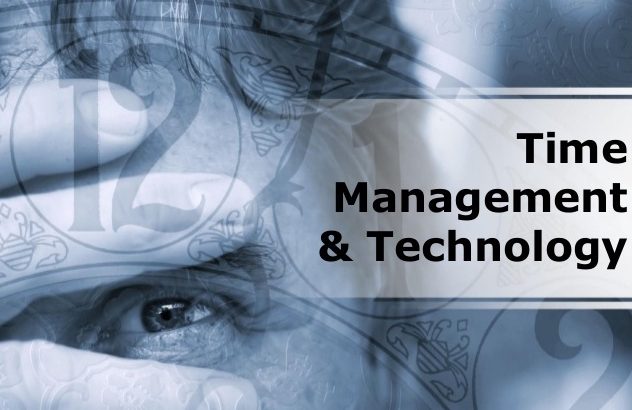Suren Ramasubbu, Contributor
Co-founder & CEO, Mobicip.com

The most common complaint against technology and the Internet age is that they are time-sinks that affect productivity and quality of life. Indeed, it is not rarely that we find ourselves lost in the jungle of hyperlinks and distractions, in a task that started out as being focused, specific and time bound. A study published in the Journal of Media Education shows that college students spend a fifth of their time in class being engaged with their devices in tasks not connected to their school work. The illusion of multi-tasking as the “superpower” of the digital age is intimately linked to distractions, poor time management and loss of productivity; a recent Time Inc. study found that digital natives constantly jump between different forms of digital media about once every minute, which impoverishes their emotional investment in any activity. This is the classic cause for poor time management.
However, it is interesting that like a toxin which becomes a medicine to treat toxicity, digital tools themselves can be used effectively for time management and productivity improvements. We already use technology to manage our time better – emails are delivered instantly over snail mails that took days, we carry our communication devices in our pocket at all times instead of relying on carrier pigeons, telegram and land-line phones that could delay our message. We use the backspace and delete button on our laptops instead of rewriting entire sections. Siri, Google and a host of other online assistants can save us a trip to the library. Telecommuting to work is very real and the time gained from not travelling physically can be put to good use in other developments.
So why are we complaining? We are complaining because the time gained using technology is lost to technology in browsing, chatting, social-networking and gaming. While browsing, chatting, social-networking and gaming are essential activities in this digital age, the problem arises when they expand to fill productive time. The danger of technology arises when a tool is utilized without the requisite skills and awareness and the tool becomes the master. But, technology has solutions to that as well. There are tools and apps available that can check wasteful activities and help in better time management.

Any remedial measure starts with awareness and there are tools that can help discover our work practice vis-à-vis wasteful activities online. Rescue time, for example, is an app that monitors your daily habits and sends you periodic alerts of how you used your time online. Once the distractions identified by the app are removed, all that’s left to be done is to focus on useful activity. Other apps that perform similar tasks are Offtime, Moment, Breakfree, Flipd, Appdetox and StayonTask.
Focus, while simple to understand, has become increasingly difficult to practice. A recent study showed that workers in the tech field could only focus for 11 minutes before getting distracted, and once distracted, it took them 25 minutes to regain focus. The wastefulness of this type of behaviour is disturbing. While mindfulness and meditation gurus help us at a spiritual level to focus better, there are digital gurus that can also lead the way. Focus booster, for example, is based on the pomodoro technique and is designed to enhance your focus and remove any anxiety you might have with time. Apps such as Focus and Freedom can enhance your productive focus by blocking distracting websites and social media sites at times specified by you.
Being focused also means being organized. Mindmapping tools such as Mind42 can help focus thoughts, thereby gaining clarity on what needs to be done. Online/digital calendars, reminders and note applications can help make lists, keep schedules and manage time efficiently. There are tools that can integrate various aspects of time management into one platform. My Life Organized can help you focus on reaching objectives by automatically generating to-do lists, with priority actions for your immediate attention so that you can track your progress methodically. Remember the Milk is another app that is designed to function seamlessly with all the time management tools set up on your devices and helps you to organize and complete tasks efficiently. Wunderlist, likewise, is a common platform that can help create to-do lists and setting reminders. Evernote is another popular productivity tool that can help in various time management activities through integration of ideas, thoughts and images in a single platform.
Effective time management includes efficient tracking of time spent on various projects. Tools such as Toggl and MyHours can track how much time is spent on different activities and can help optimize work style in order to obtain maximum benefits.
Being focused also means taking breaks, all work with no break can adversely affect productivity and efficiency. Research as early as the 1960’s showed that our brains work in 90-minute rest-activity cycles and hence a recharging break every hour and half is imperative for productivity. More recent imaging studies have shown that some critical sections of the brain become active during downtime, indicating that periods of rest are critical in allowing the brain to synthesize information, make connections between ideas and even develop the sense of self, all of which are essential for efficient performance and better time utilization. There are digital tools that can remind us to take breaks periodically. Dejal TimeOut can help taking breaks during work by periodic forced dimming of the screen to give you the necessary break from staring at a screen for too long. Eyeleo is another such app that helps to periodically rest the eyes from staring at any glowing screen for too long. Similarly, PC Work Break reminds you to take micro breaks, stretching breaks, eye exercises, and even walks, thus helping you unwind and relax in the middle of a busy day.

The apps and tools listed above are merely representative of the innumerable time management assistance available in the digital arena. We must however remember that time management skills, must centre around human needs and psychology. The plethora of tools for time management are useless without the core human competence of self-discipline. Lack of discipline and commitment can lead to procrastination and abuse of the same technology that can help us in increasing our sense of satisfaction and wellbeing. With the digital era slowly emerging from its nascent state, and an entire generation of digital natives entering adulthood, it is important to make technology an asset in time management rather than a deterrent.




